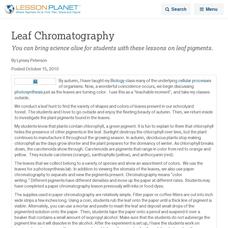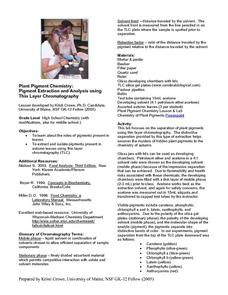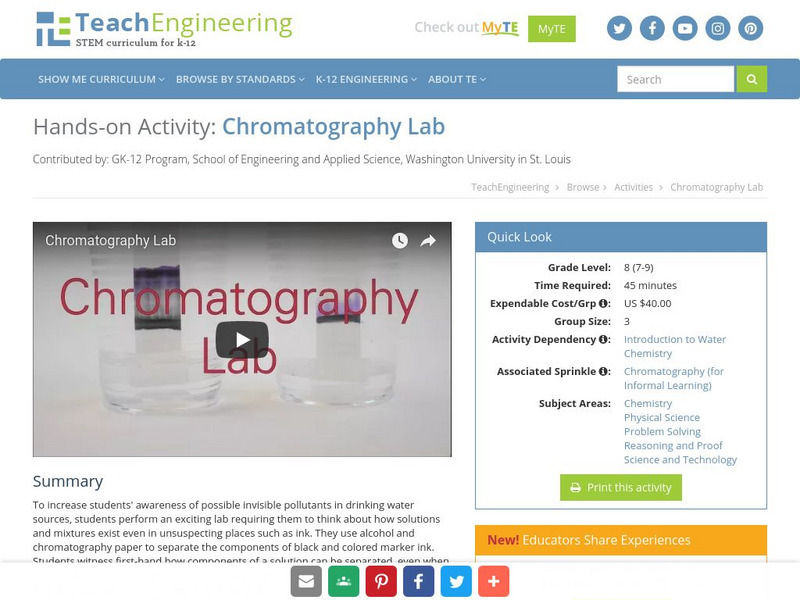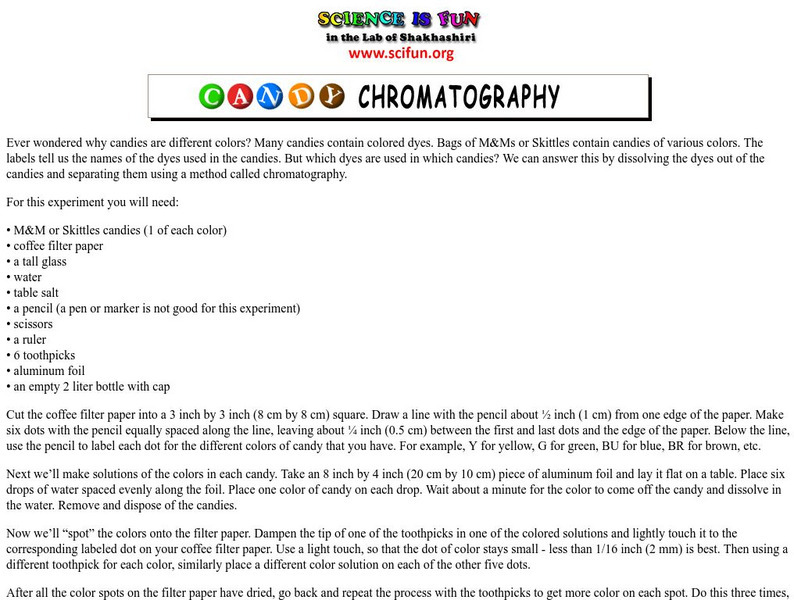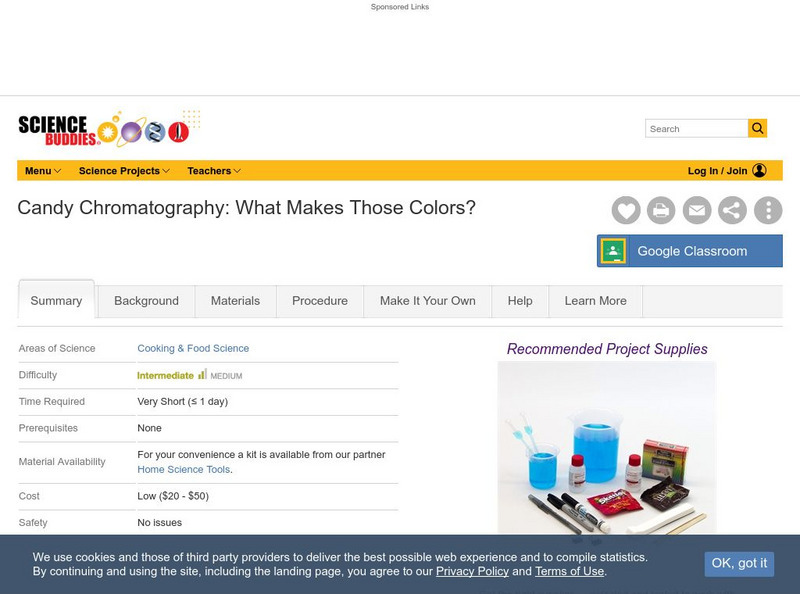Curated OER
Leaf Chromatography
You can bring science alive for students with these lessons on leaf pigments.
Curated OER
Ink Analysis and Thin Layer Chromatography
Students explain the process of TLC. They identify at least three components of ink. They analyze data and make conclusions based on laboratory observations.
Curated OER
Chromotography
In this chromatography activity, students are given markers, filter paper and a solvent to separate the pigments found in each marker. Students create a chromatogram for each marker.
Curated OER
Separation of Unknowns in a Liquid
Students identify the different components of a given sample using chromatography. In this chemistry instructional activity, students compare paper and column chromatography. They collect data and construct data tables.
Curated OER
Mixing Colors
Fifth graders perform experiments with color mixing and color changing. They observe the differences between physical and chemical changes and record their observations in journals.
Curated OER
Plant Pigment Chemistry
Students discover the roles of pigments present in leaves. They extract and isolate pigments present in autumn leaves using a thin layer chromatography. Very nice lesson and lab!
Curated OER
Relationships and Biodiversity
Students examine diversity on the planet and the differences within a species. In this investigative lesson students complete a lab that allows students to better understand the relatedness between plants.
Curated OER
Molecular Evolution in Plants
Students examine chlorophylls. They explore the absorbing pigments in a variety of plants. Through activities, students determine spectrophotometrically. They compare plant proteins from the family Brassicace to assess the level of...
Curated OER
CSI: Native America
Students discuss the murders of Native Americans in Indiana. In groups, they research and make drawings of the scene as if they were part of a CSI team. They complete any needed experiments to help them solve the crime and create a...
Curated OER
Isolation of Synthetic Chemicals from Plant Leaves
Young scholars isolate and identify a dye, which represents a synthetic pesticide, from plants.
Science Education Resource Center at Carleton College
Serc: Paper Chromatography: These Colors Do Run
An lab experiment where students see how molecules move by doing paper chromatography. Site includes student handout and teacher presentation.
TeachEngineering
Teach Engineering: Chromatography Lab
To increase students' awareness of possible invisible pollutants in drinking water sources, students perform an exciting lab requiring them to think about how solutions and mixtures exist even in unsuspecting places such as ink. They use...
Dartmouth College
Dartmouth College: Chem Lab: Spectra of Conjugated Dyes & Beer's Law
In the first part of this lab, you will measure the absorption spectra of two conjugated dyes and compare the results to the theoretical predictions of a particle-in-a-box model. In the second part of the experiment, you will identify...
Science is Fun
Fun Science: Candy Chromatography
Using simple household items like M&Ms and coffee filters, you can demonstrate paper chromatography. This simple lab will show you the dyes that make up the different color coatings on M&Ms.
Science Buddies
Science Buddies: Candy Chromatography: What Makes Those Colors?
One of the characteristics that makes M&Ms so popular is dye that colors the hard shell, and of course the chocolate. But, many are unaware of what dyes are used to make those colors. This day long lab uses paper chromatography to...
BBC
Bbc: Gcse Bitesize: Analyzing and Identifying Substances Aqa
This lesson focuses on analyzing and identifying substances. Substances can be analyzed using a variety of methods including paper chromatography, gas chromatography and mass spectrometry. After reading about the different techniques,...
National Health Museum
Access Excellence: Wolf Pack in a Bottle: Dna Simulation
This lesson plan can be used to illustrate the principle of electrophoresis without the equipment. Paper chromatography can be used to separate dye just like electrophoresis will separate DNA. The lab also covers DNA analysis for an...
Science Education Resource Center at Carleton College
Serc: Mn Step: Spotting Chromatography
A lab activity that introduces chromatography using markers, plus water and acetone as the solvents. Students will take measurements to compare the mobile and stationary phases of the inks, and find the polarity of the inks and solvents....

